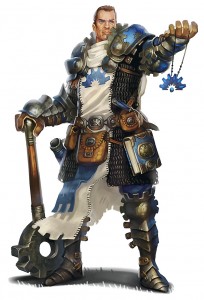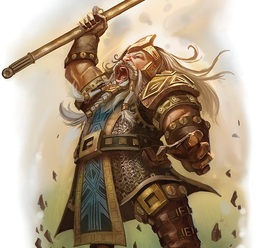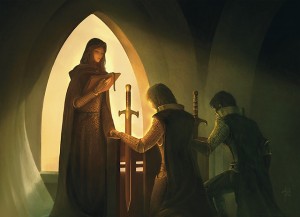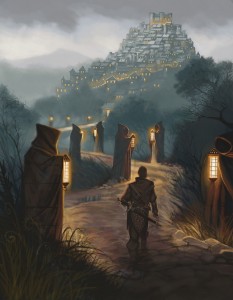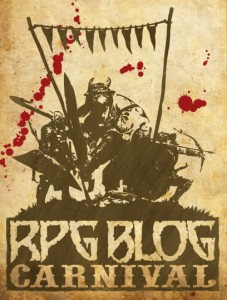 This month’s RPG Blog Carnival is being hosted by Nevermeet Press. The topic is Things to Love, Things to Hate.
This month’s RPG Blog Carnival is being hosted by Nevermeet Press. The topic is Things to Love, Things to Hate.
The Cleric has always been my favourite class in D&D. I’m not a spiritual person in real life but there’s something I’ve always found appealing when it comes to playing divine characters. I think a big part of it is knowing that my character has to very power of life and death in his hands. With just a thought he can call forth his deity’s power and heal wounds. Having this power, a power until 4e that was limited to divine character, is like having insurance that the rest of the characters don’t. No matter how bad things get I know that I can use my class powers to heal wounds and stay on my feet. This is not to say that I’m a selfish Cleric, but if I go down no one else gets healed which certainly makes a compelling argument for serving my own needs first.
In my opinion, the most significant improvements to the Cleric class in 4e was making the ability to heal a minor action, thereby allowing the Cleric to still participate in combat. Until 4e Clerics often did nothing but heal the wounded while all the other classes did amazing things. Not so with 4e. The combination of the healing surge mechanic and Healing Word as a minor action made Clerics a lot more powerful because they could be a lot more involved. This is a big reason why I still find Clerics among the best classes in 4e D&D. It’s also the reason that I choose healing surges as the focus for this article, my contribution to this month’s RPG Blog Carnival.
